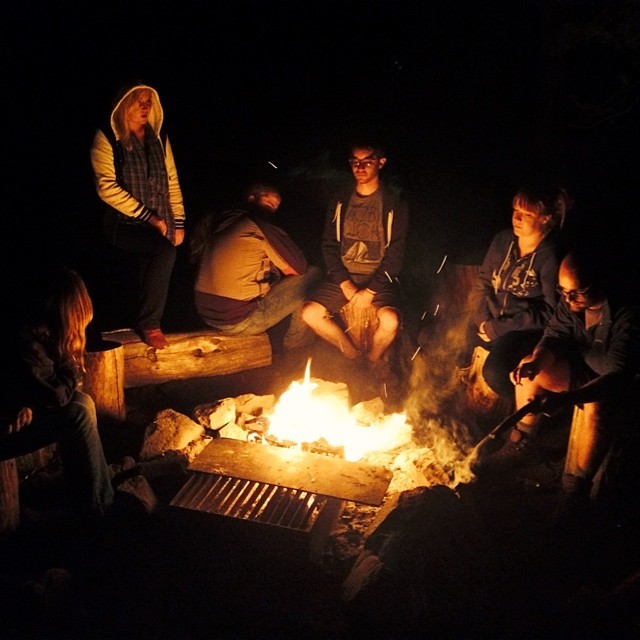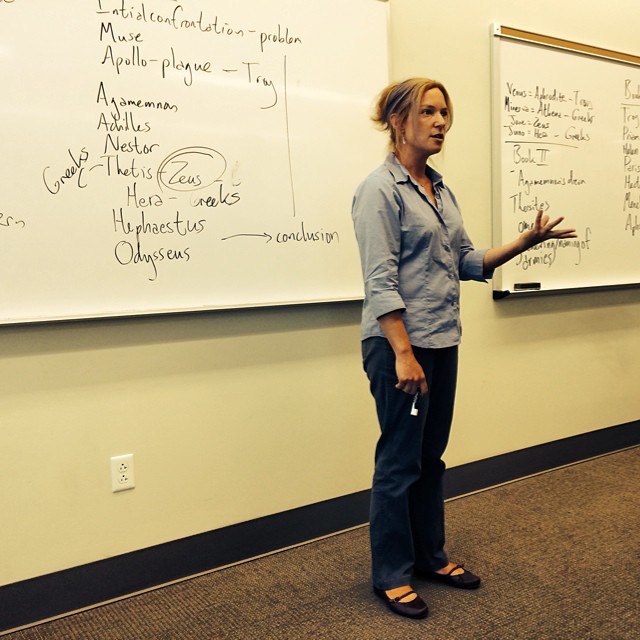All the contact information and information regarding applying for and graduating from the Honors Program is on the admissions page here.
In judging applications, the Honors Program considers the student's high school academic record (including grades and courses taken), standardized test scores, and writing ability (as demonstrated in a brief essay on one of several assigned topics). Normally a high school grade point average of 3.50 or higher is recommended, as well as an ACT composite score of 25 or above, or SAT composite of 1200 or above. However, there are no cut-offs and students can fall above or below these average scores. We encourage all interested students to apply.
No. Acceptance into the Honors Program is not automatic and not all admitted students are awarded a scholarship. Students must submit an Honors application. The typical freshman application deadline is February 1 of each year (for new or transfer students seeking a Tuition or Housing Scholarship), but the Program offers rolling admission and a very limited number of scholarships for continuing students. All students applying to the program must submit an ACT or SAT score.
Such an interview is not required for admission to the Program. However, if students are interested in the Program and would like to find out more about it, they are encouraged to visit campus after scheduling an appointment with a member of the Honors Program's staff. If visiting campus during the academic year, the Program can arrange for students to sit in on an Honors class. The UVU Admissions Office offers daily tours of the entire campus throughout the year.
Students are notified of acceptance into the Program via letter to their myUVU email. That letter will detail the Honors courses students need to register for, as well as any other information regarding initial enrollment in the Program. Most students schedule a meeting with the Honors Advisor to help plan a schedule that appropriately integrates Honors alongside their other coursework. One of the benefits of being in Honors is Priority Registration (meaning students get to register as soon as registration opens), so students are encouraged to seek out their advisors prior to registration.
There are approximately 1200 students in the Program (out of a total undergraduate population of 30,000+). Approximately 150 first-year students enter the program each year.
Except in rare cases, enrollment in Honors courses is limited to 15–25 students. Honors classes typically involve more discussion and less lecturing/note-taking, more critical and analytical thinking and less simple memorization, and more writing and less objective testing than regular classes. The general goals of the Honors Program are to promote students’ abilities to recognize and draw interdisciplinary connections, to engage in critical thinking, to communicate effectively both orally and in writing, to promote student self-confidence and intellectual independence, to enhance students' abilities to work collaboratively with others and to enhance students' global and intercultural awareness.
Yes. The UVU Honors Program requires students to take 9 credits of specialized courses: three semesters of the one-credit Honors Colloquium (HONR 100R), as well as HONR 2000: Ancient Legacies and HONR 2100: Modern Legacies. Other courses required for graduation with Honors are drawn from courses that fulfill General Education or major requirements.
Students must complete the Honors Program's course requirements (determined by a student's entry point) and maintain a 3.4 cumulative GPA to graduate from Honors. Students who fall below a 3.4 GPA prior to graduation must participate in an Honors probation program to help repair their academic performance problems. Students earning a grade below B- in an Honors Core class will be required to retake the class in order to earn Honors credit.
Not likely. Because Honors students are typically bright, mature, and well-motivated—and because the environment in Honors classes is especially conducive to learning—Honors students tend to make higher grades in their Honors classes. Each year over 90% of first-year Honors students earn a 3.0 GPA or higher. The average first-year Honors student earns a GPA of 3.5 in his/her Honors classes—and an identical 3.5 in her/his non-Honors classes.
UVU Honors students are able to graduate with two kinds of Honors: “Latin” honors such as cum laude and magna cum laude (which are based strictly on GPA); and University Honors (which are awarded by the Honors Program). The primary requirements for graduation from the Honors Program are a university grade point average of 3.4 or above, 26–33 credits hours of Honors coursework in a range of fields (including HONR 100R, 2000, and 2100), and the completion of an Honors Thesis or Honors Project.
Honors courses tend to require more writing, critical thinking, and class participation than non-Honors courses. However, most Honors students come to appreciate and enjoy the special challenges posed by Honors courses—and take as many Honors courses as they can.
The Honors Program offers a wide range of enlightenment activities, including guest speakers, discussions led by Honors faculty, informal reading, research, and service groups, and excursions off-campus to outdoor activities, museums, musical and theatrical productions, as well as other sites and events. The close relationships students form within the Program Directors, Advisor, and student Ambassadors as well as with faculty during the Honors Thesis or Project phrase, allow for insightful letters of recommendation and individualized guidance.
No. The Honors Program recommends that students take a mixture of Honors and non-Honors courses each semester.
Though they have very different personalities and academic interests, Honors faculty all enjoy working with bright and well-motivated students, prefer interactive teaching methods to traditional lecturing, and enjoy conveying the excitement of intellectual discovery to their students.
Honors students receive priority registration for both their Honors and non-Honors classes. Honors students have access to academic advising every day in the Honors suite, a place where students are warmly welcomed and encouraged to feel at home. Honors students receive personal attention and enjoy the sense of community, which are normally available only at small liberal arts colleges. For many students, these benefits ease the process of adjustment to college life.
Yes, the Honors Program typically awards 106 Housing Scholarships each academic year, which pays for about 1/2 of the rent at a local apartment complex. Students have private rooms in an all-Honors apartment. Honors Housing offers students a strong sense of community; regular opportunities for fun, relaxation and socializing; special programs of interest to students; on-site Resident Advisors; and an environment in which the need to study is appreciated. The mission of the Honors Housing is to create a seamless educational environment that supports the goals of the Honors Program.
Only students who apply for and are accepted into the Honors Program are eligible for the Housing Scholarship, including non-resident students. Housing Scholarships are awarded annually during February and March on a competitive basis to the highest-achieving applicants.
Honors students have access to special educational opportunities designed to foster their long-term intellectual and personal growth. Their participation in the Honors Program is also likely to enhance their postgraduate job prospects and/or application to graduate and professional schools. Honors Program graduates from UVU have recently gone into a number of exciting post-baccalaureate endeavors. Some recent graduates are enrolled in graduate and professional programs at the University of California, Riverside, Western Washington University, Eastern Oregon University, and Arizona State University, just to name a few.









